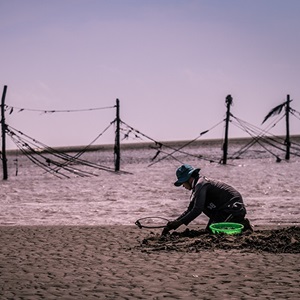Oceans are essential to life on Earth. They cover more than 70% of the planet's surface, regulate its climate, and supply much of its oxygen.
The oceans are also home to an extraordinary variety of life. Much of this life is essential to sustain people’s livelihoods and ensure food security, as millions rely on fish as their primary source of protein.
Seafood is our last major food source that is truly wild.
35.5%
of stocks fished at biologically unsustainable levels *
56%
decline in marine populations **
62 million
employed in primary production in fisheries and aquaculture ***
The risks to ocean health
The stakes are high when we consider how intrinsically linked the health of our oceans is to our environmental, social and economic wellbeing.
According to the United Nations FAO's 2025 Review of the state of world marine fishery resources paper, 35.5% of stocks monitored in 2021 were fished at biologically unsustainable levels.
The size of marine populations declined by 56% between 1970 and 2020 according to WWF’s Living Blue Planet Report 2024.
Key factors contributing the problem are overfishing, illegal and destructive fishing as well as climate change. It’s not just the loss of species and ecosystems, the problem has a serious impact on communities.
What is overfishing?
What the MSC does
We work with fisheries, scientists and industry to make sure our oceans are fished sustainably and it’s easy to find and buy certified sustainable seafood.
By choosing seafood products with the blue MSC label you are directly supporting fishers that take care of our oceans and encouraging others to do the same.







